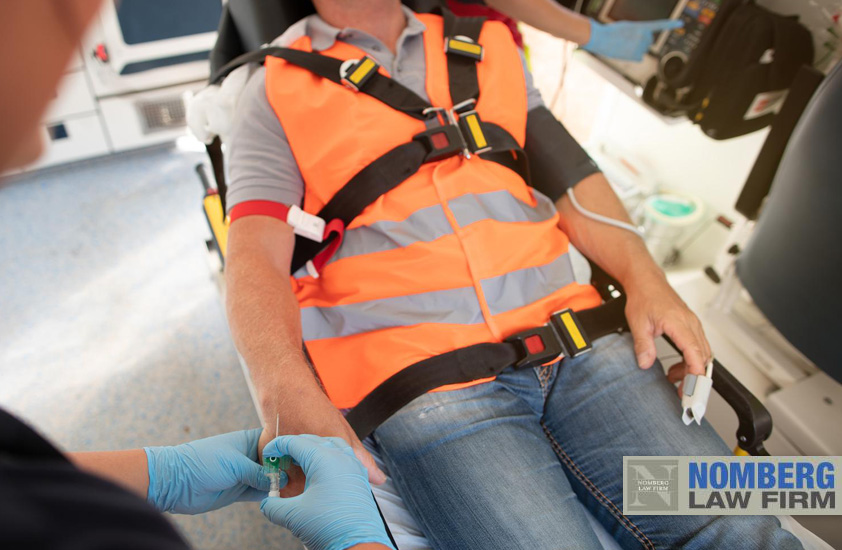It’s just like the movies, right? Not exactly…
by Bernard D. Nomberg, Partner, The Nomberg Law Firm
By the very nature of the workers’ compensation laws in Alabama most claims do not have to be filed into court or tried in court to reach a resolution. It is our experience at the Nomberg Law Firm that majority of workers’ compensation claims are settled in lieu of litigation.
However, with that small percentage of cases that make it all the way to trial there are issues between the parties that cannot be resolved without the court’s guidance. These trials are conducted in front of a judge only. With just a few exceptions, there are no jury trials in Alabama for workers’ compensation cases. In fact, Alabama is the only state where workers’ compensation cases are tried and ruled on by a trial judge. All other states use a commission, board or administrative judge. Typically, the lawsuit will be filed either in the county where the employer is located or where the accident took place.
What to do & not do when filing an Alabama workers’ comp claim
There are deadlines, rules, and procedures that cannot be avoided or worked around in order to have a successful claim.
Trials usually last less than one day, most only take a few hours. It really depends on how many issues are contested between the parties. The more issues the parties can agree upon the shorter the trial. For example, if the degree of disability is the only issue before the court, and everything else is stipulated to and put into evidence, then typically the trial will last just a couple of hours.
While My Cousin Vinny centered around a criminal trial in Alabama as opposed to a workers’ compensation trial, we admire Vincent Gambini’s skill in the courtroom (even if his courtroom clothing choices were questionable.)
However, if the worker’s compensation claim is denied completely, then a compensability hearing will be conducted early in the litigation. This hearing is for the judge to determine whether or not the claim is compensable. For this hearing the judge is not determining the degree of disability. Those mini-trials determine if the case goes forward after the compensability is determined.
At a compensability hearing, the injured worker’s attorney will give a brief case summary to the judge just prior to the client taking the stand. The injured worker’s testimony will take between 30 minutes to a couple of hours to complete, depending on how complicated the case is and how long the cross examination is by the insurance company attorney.
After the injured worker is finished testifying, sometimes a neighbor, spouse, or coworker might also testify to some specific issues. Typically the parties will agree to allow the pertinent medical records to be placed into evidence for the judge’s review. Lastly, to help guide the court on the applicable issues and law, the injured worker’s attorney will submit a trial brief. Once the plaintiff rests his case, the defendant will determine whether or not to put on its side of the trial or just rest, which would allow the judge to then contemplate the case.
Why do workers’ comp cases move so slowly?
Delay tactics in workers’ comp claims are common, designed to tire out employees and make them accept lower settlements. This isn’t fair, and we’re here to right the wrong.
Assuming the court rules in the favor of compensability, the case will then proceed through litigation to trial unless it is settled along the way. The final trial is a more involved process that usually takes longer than the compensability hearing. At that trial there could be more witnesses, more issues before the court, and expert witnesses could be called to trial or for their depositions to be submitted into evidence.
For both types of trials, the court will request both parties to submit proposed orders. Hopefully the court will issue its ruling within a matter of a few weeks after trial. That order will then help guide the parties for the remainder of the case.
If you have questions or concerns about workers’ compensation matters, please contact us by calling 205-930-6900 or visit our website nomberglaw.com. We are located in downtown Birmingham and handle cases throughout the State of Alabama.
Bernard D. Nomberg has practiced workers’ compensation law in Alabama for more than 20 years. Bernard has earned an AV rating from Martindale-Hubbell’s peer-review rating. He has been selected a Super Lawyer by Super Lawyers Magazine as well as a Top Rated Attorney by B-Metro Magazine.


